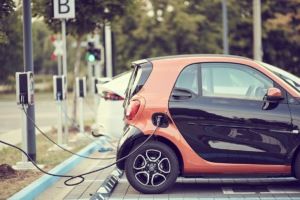News
Business Round-Up: Fortune needed to meet the green goal of driving electric cars
This article is more than 5 years old.

Very good chance it has a Chinese battery and that the energy comes from a solar panel produced in China (photo: Pxfuel)
According to its recently published analyses, Dansk Energi Denmark will need 32-48 billion kroner in order to meet its plan to the place the number of electric cars on the roads needed to make an environmental impact.
READ MORE: Denmark most expensive country to charge an electric vehicle – study
The company cites concerns that the current electric grid is not capable of handling many more cars.
The demand, it worries, can lead to power outages, and there is a possibility the grid will need to be expanded.
Uncertain future
The report advises choosing a ‘smart way’ to lower the expense.
For example, charging prices need to vary according to the time of day to ensure that not everyone charges at the same time.
Dansk Energi acknowledges that “it is difficult to predict the future” as more and more will produce their own electricity with solar panels in the future, while three times more electricity will be consumed on the roads.
FLSmidth confirms it has laid off 840 employees
Reduced business activities in the mining and cement industry in the second quarter resulted in declining revenues for the Danish engineering FLSmidth, which has laid off 840 employees this year. According to Erhvervplus, the redundancies have cost the company a loss of 17 million kroner, corresponding to a 30 percent decrease in its revenue compared to last year. Previously, the engineering group expected a moderate improvement in the third quarter. However, the Coronavirus Crisis has hit the industry hard.
New home for Nationalbanken headquarters
Danmarks Nationalbank, the central bank, is moving to Østerbro as its home on Havnegade in the city centre is undergoing a major renovation, reports Kobenhavn Liv. The then Danish Cultural Heritage Agency decided in 2009 to preserve the building due to its architectural and cultural-historical values. Thanks to the move, the prestigious Langelinie building Pier 47 will finally have a tenant that can take a major part of the building. The building was completed in 2015 but has struggled to find tenants. The central bank, which has almost 500 employees, will stay there for the next four to five years
EU’s new FTA with Vietnam expected to impact Denmark
The Foreign Ministry on August 1 announced the EU’s new free trade agreement with Vietnam. The agreement contains significant tariff savings – today 65 percent of EU exports can be traded duty-free in Vietnam and when the agreement is fully implemented 99 percent of customs duties will be eliminated. As the duty on several goods in Denmark is higher than 20 percent, the ministry expects the agreement to contribute to the Danish economy. The ministry sees the agreement as a strong signal that the EU is “open for business”’, given that the Coronavirus Crisis led to several trade barriers worldwide.
New Radisson hotel opens in Aarhus
Radisson has opened a new hotel in Aarhus: the Radisson RED. The new hotel is closely located to Radisson Blu Scandinavia in Aarhus, which is celebrating its 25th anniversary this year, and also City Hall, Ridehuset and ARoS Aarhus Art Museum. The new hotel is equipped with 78 rooms, a restaurant, a bar and meeting rooms. The hotel chain is confident that the new hotel has accomplished a “trendy Nordic aesthetic” with industrial design elements. Initially the hotel was expected to be completed by the autumn of 2019. As the first RED hotel in the Nordic region, the Radisson RED in Aarhus will be followed by similar concepts in Reykjavik and Oslo.










































